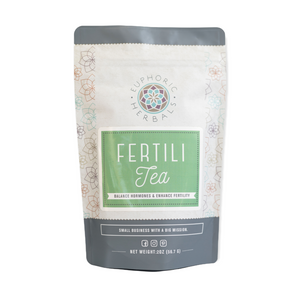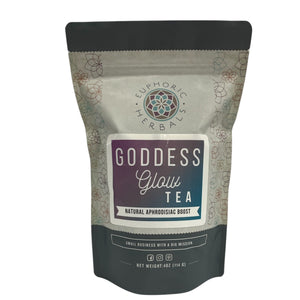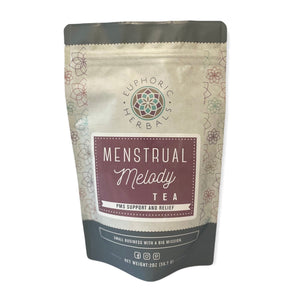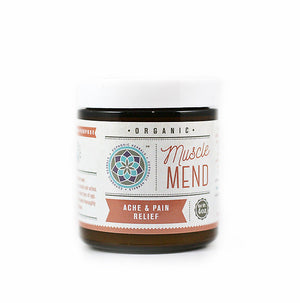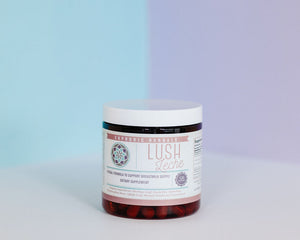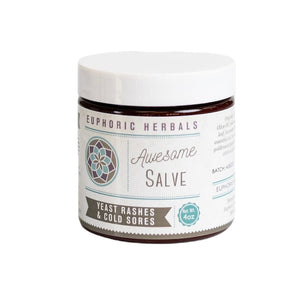If you have oily skin, you know how frustrating it can be to deal with. Breakouts, a shiny face, makeup sliding off- it all starts to drive you crazy. Products for oily skin can be really harsh and irritating, maybe even drying out your skin too much.
And though it might feel like nothing ever works, nature has given us some better options. If you feel like you've tried everything, here are some herbs and home remedies for oily skin that might give you some light at the end of the tunnel.
Herbs for Oily Skin
Typically, the best herbs for oily skin are astringent ones, although there are exceptions. Astringent herbs by definition tighten and tone tissues. Many also have a drying effect, which can help to reduce oil on your skin.
However, just because an herb is astringent doesn't mean it automatically has a drying effect. For example, rose is an astringent and helps to tone skin, but it's equally as good for those with dry skin as oily.
Here are some top herbal picks.
Witch Hazel

Witch hazel bark is an astringent herb that can help with oily skin and acne. It contains plant compounds called tannins that give it an ability to remove excess oil from your skin.
Witch hazel also has anti-inflammatory and antibacterial properties that fight against breakouts that frequently go with oily skin. (1) You can easily buy and use witch hazel extract as a toner after cleansing your face.
Willow Bark
Both white and black willow bark have the ability to decrease oil production in your skin. Not only are they astringent herbs, willow bark also contains salicin, a precursor to salicylic acid, which is often used in acne products.
The salicin gives willow bark anti-inflammatory action to calm your skin as well as dry excess oil. (2) Willow bark can be used as a decoction or extract for your skin. It can be very drying, so you may want to mix it with rose or lavender hydrosol before using as a toner.
Peppermint
Peppermint is not a strongly astringent herb like witch hazel and willow bark. It works more to balance out oil production in your skin, which means that it won't overly dry out skin.
Peppermint also has antibacterial properties and will cool skin on contact, which makes it great if you have inflammation or acne to go along with excess oil. (3) Use it as an essential oil (diluted) or strong infusion/wash.
Yarrow
Yarrow is another astringent and anti-inflammatory herb. It has a history of being used for wound healing, but also has benefits as a facial steam or toner for oily skin. Yarrow can be combined with other herbs like witch hazel for a synergistic effect.
Rosemary and Sage
Rosemary and sage are sometimes referred to as "sister herbs" because they are closely related plants. Both contain rosmarinic acid and have astringent properties. (4)
Sage has a drying and regulating effect on body fluids and can help decrease excess oil. Rosemary is more balancing and can help with skin types that both overproduce or under-produce sebum. You can try either as a facial steam, use them to make a toner, or use the essential oils in your face wash.
Lemongrass

Lemongrass is an unfamiliar herb to many but has great properties for oily skin. Its astringent, antimicrobial, anti-inflammatory, and can help regulate oil production. Lemongrass can even help minimize pores and tighten your skin.
The essential oil is probably the most popular form of lemongrass used, but it can be very strong. Be sure to dilute before using, or try buying some lemongrass to make your own toner or face wash.
Other Home Remedies for Oily Skin
Lemon
Lemon is one of the classic home remedies for oily skin and can be used in several ways. Lemon juice contains citric acid that acts as an astringent and tones skin. You can apply it by itself or diluted with a little water, or make a mask out of egg whites and lemon juice. Rinse off the lemon juice after about 10 minutes.
You can also use the essential oil as part of a face wash or moisturizer (just be aware it can make your skin sensitive to sunlight). And you can even use lemon peel as part of a toner or face gel to brighten skin and minimize pores.
Aloe Vera
Aloe vera gel is a great oil-free, natural ingredient to use on your skin. It provides skin hydration, so it won't dry out your skin, and contains salicylic acid that mildly exfoliates and helps with excess oil. (5)
You can apply it as a thin layer over your face or mix in essential oils to create a face gel.
Apple Cider Vinegar
No list on home remedies for oily skin would be complete without mentioning apple cider vinegar. It contains acids that give it astringent properties and help to tone skin, minimize pores, and restore proper pH.
Apple cider vinegar is most effective when combined with herbs for oily skin. You can use it as the base ingredient to make a toner that contains one or several of the herbs mentioned above. Apply your DIY toner with a cotton ball or spray lightly on your face.
Green Tea

Green tea is well known for having lots of skin-boosting antioxidants, but it's especially great for oily skin. Green tea contains tannins that give it astringent properties. It also helps to reduce oil production in your skin. (6)
You can make a cup of tea to use as a face wash or look for a green tea extract or serum.
Clay
Cosmetic clay can make a great face mask or cleansing scrub for oily skin. Clays absorb excess oil and help to draw other impurities out of your skin as well.
French green clay, bentonite clay, and rhassoul clay are more absorbent than other types and good choices if your skin gets really oily. White clay (also called kaolin) is milder and better for winter use so that your skin doesn't get overly dry.
You can easily make a DIY face scrub by mixing clay with almond flour or ground oats in a 4:1 ratio. Wet the mix with raw honey and distilled water (or rose hydrosol), adding essential oils if desired. Massage into your face and rinse with warm water.
Beating Oily Skin With Home Remedies
Using home remedies to deal with oily skin is natural and affordable. It can be challenging to find which ones work best for you, but the experimenting is well worth it!
You may even find that different herbs or remedies are more helpful at different times of year. Some may work for summer but will be too drying for winter. Keep going until you find what your skin loves.
If you need more skincare help, learn about the 12 best essential oils for skin or reasons to switch to natural skincare.






















































